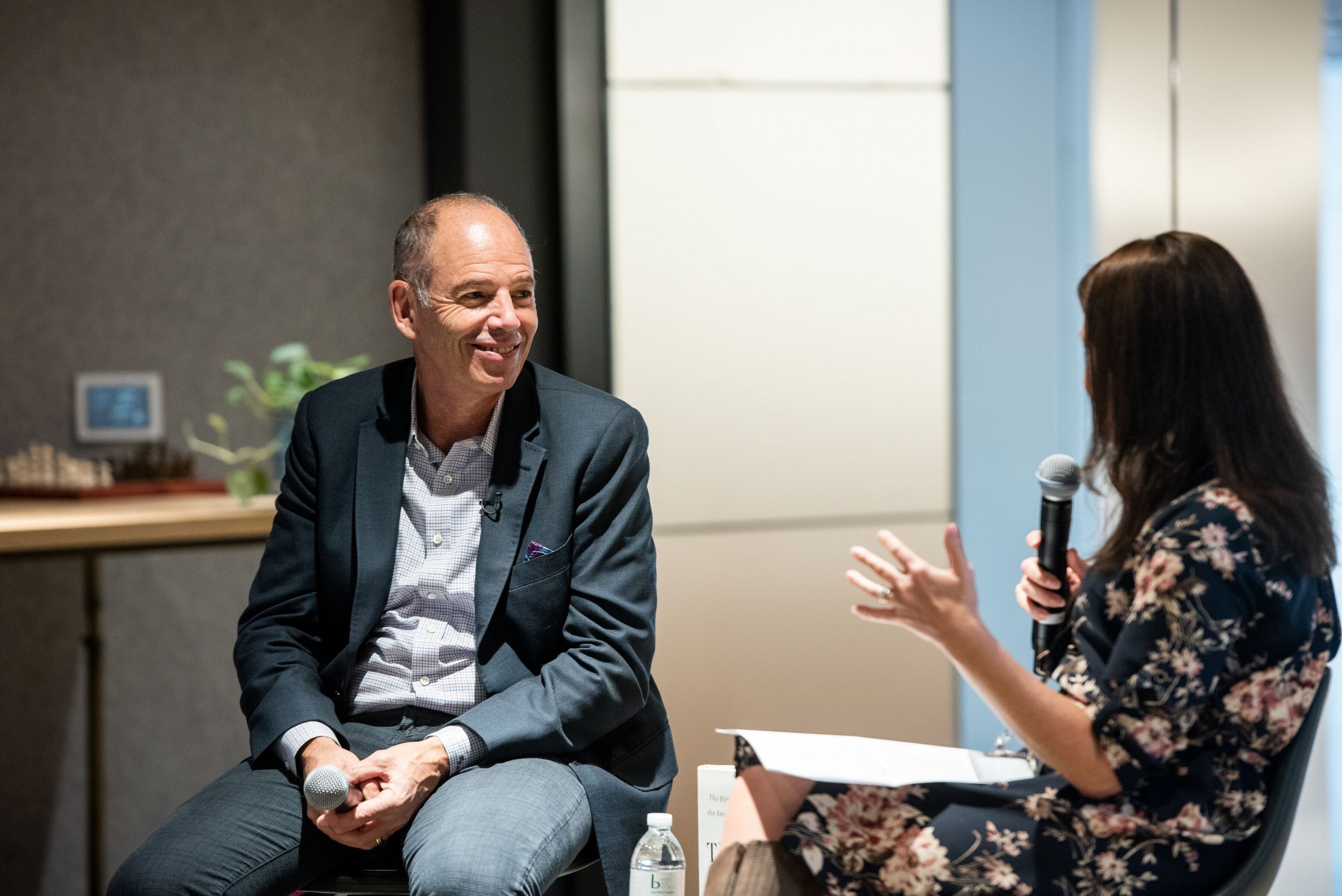
During their daily commute along Highway 17 in Silicon Valley, Marc Randolph and Reed Hastings couldn’t stop kicking around business ideas. They thought about starting a shampoo delivery service, a customized pet food business, or a personalized baseball bat company.
But video rental by mail intrigued them more than the rest. It was the late 1990s, and small, lightweight DVDs were just coming into the mainstream. Once Randolph and Hastings realized DVDs could be mailed for the price of a first-class stamp, they were all in.
From those humble beginnings, Netflix was born. Turning the company from an idea into a powerhouse tech and entertainment company taught Randolph — the co-founder and first CEO of Netflix — valuable lessons: Always be laser-focused on the future; empower employees; embrace new ideas and test them rigorously.
Randolph visited LIFT Labs PHL to chat about the early days of Netflix and his new book That Will Never Work: The Birth of Netflix and the Amazing Life of an Idea. Here are five lessons he shared:
Ignore the past so you can excel in the future.
In the early days of Netflix, revenues were driven by DVD sales — not rentals. But with Amazon rising fast, margins being tight, and video streaming on the horizon, Netflix made a bold move — the company stopped selling DVDs.
“It was terrifying because you turn the switch and all of a sudden your revenues change from $100,000 per month to $2,000 per month. That focuses you,” said Randolph. “It’s a problem that kills a lot of companies. All of a sudden, you see the future, it’s not going the direction you want it to go, and you’re scared or unwilling to change. You need the willingness to ignore the past to get the future right.”
Test, test, and test again.
Bold ideas are crucial to helping early stage startups gain traction. But many founders are scared to take chances, opting to research heavily before taking risks. Randolph says that’s a mistake, and encourages lots of trial-and-error.
“Most people err way to far on the research side and err way too little on trying new things,” he said. “The really smart early stage leaders not only have great ideas, they are clever about figuring out ways to test ideas quickly, cheaply and easily. They know how to fake it and hack it. That helps you learn fast.”
Early employees might not be suited to grow and scale your company.
The best early stage startup hires have determination, creativity and a deep belief in what the company is building. When it’s time to grow and scale the company, they might be passed over for people with more specialized skills who are more comfortable leading big teams. That means the sales dynamo that helped you gain early clients may need to be replaced with a vice president of sales that can manage a growing sales team.
“In the beginning, you recruit people with nothing more than hope. They believe. They work day and night, ignore their families, come back early from vacation and give everything to make it happen,” said Randolph. “Low and behold it happens, and they’re not the right people for the next stage.”
Treat people like adults.
As Netflix grew, leaders implemented policies around travel and vacation — but soon removed them. Randolph says that empowered the workforce and showed that Netflix trusted them to make decisions on their own.
“What motivates people is to treat them like adults. You know what our travel policy is? There isn’t one. You know what our expenses policy is? There isn’t one. How about our vacation policy? There isn’t one,” said Randolph. “All those policies are four words long: Use your best judgement.”
Realize when it’s time to walk away.
By 2003, Netflix grew beyond Randolph’s wildest dreams. It IPOed and grew to 1 million subscribers. But Randolph’s expertise is growing early stage startups, and he recognized that he wasn’t quite right for the company anymore.
“I’ve never been in the business to make money or get famous. I liked solving problems. I’m the first to admit, I’m really good at early stage stuff,” he said. “But I’m terrible at big companies. Even though I loved Netflix like I’d love a child because it was my baby, I didn’t love the things I was doing everyday. I realized I had the freedom to do the things I love, so I left.”
